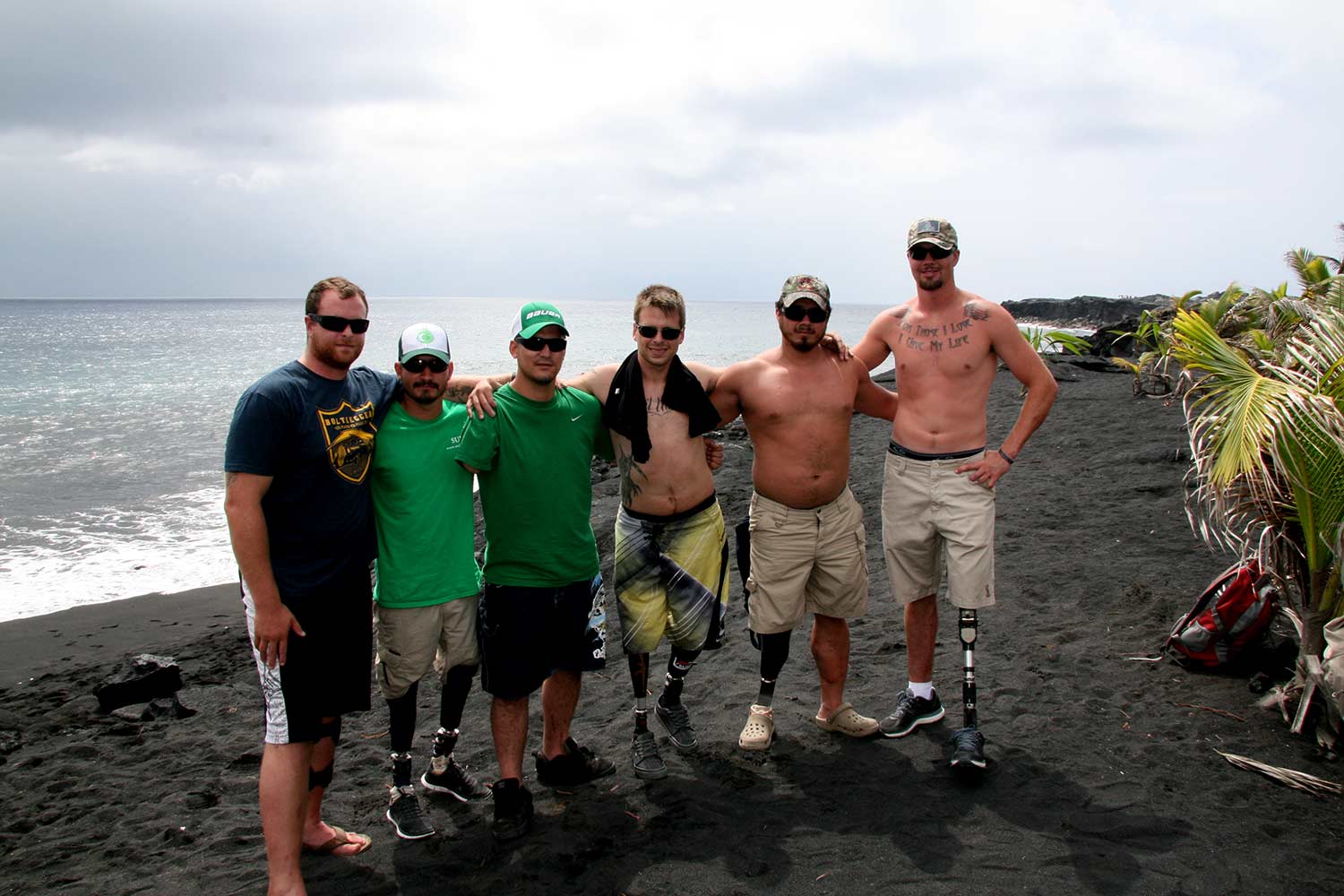How Scuba Diving & SUDS Help War Veterans
by Darren Pace:

photo credit: SUDS
When a wounded warrior comes home from Iraq or Afghanistan, it can take a long time for him or her to heal physically and overcome the effects of post-traumatic stress disorder (PTSD). However, a nonprofit organization called Soldiers Undertaking Disabled Scuba (SUDS) offers veterans a novel and powerful way of accelerating this painful process: It brings America's heroes deep under the ocean.
John W. Thompson, a veteran of the U.S. Army National Guard, founded this initiative. This project began with a visit to Walter Reed National Military Medical Center in Bethesda, Md. One day, Thompson met his wife for lunch at that renowned institution, and seeing so many wounded soldiers spurred him to begin volunteering with the American Red Cross. When the Red Cross assigned him to its aquatics department, Thompson witnessed firsthand the therapeutic properties of water.
Thompson, a certified scuba instructor, realized that he could employ his diving expertise to improve the lives of injured veterans. Thus, in 2007, he launched SUDS as a chapter of Disabled Sports USA, and he set up its headquarters at Walter Reed. Today, every SUDS staff member is a volunteer, and most of those volunteers have served or are currently serving in the military. SUDS gives each of its members the opportunity to earn an official Scuba Diving International (SDI) certificate. Further, in 2013, this group opened a branch at Naval Medical Center San Diego (NMCSD).
SUDS members study scuba fundamentals online, and they can proceed at their own pace. Afterwards, they practice various techniques in therapy pools. And veterans who have suffered severely debilitating injuries, amputations, and/or the loss of their hearing or sight can attain certification through the trademarked Scubility program. Scubility instructors undergo special training in order to teach a variety of alternative underwater skills.
In virtually every case, being underwater offers servicemen and women profound relief. For starters, when people are submerged in water, they become weightless. And when they're freed from the constraints of gravity, it removes pressure from aching muscles and joints. Plus, weightlessness enhances mobility and improves respiration.
 |
 |
What’s more, the undersea world is a strikingly peaceful place; people often experience feelings of transcendence as they mingle with ocean creatures. That tranquility is especially important as many SUDS participants are struggling with the lingering emotional effects of PTSD and the stress that often accompanies extensive medical care. Indeed, some of these individuals are facing dozens of major surgical operations. But when they plunge into the water, they can escape that anguish for a while. Thus, many SUDS divers discover that they're enjoying themselves for the first time since their active duty ended. Equally important, they can make friends in the process — friends who truly understand what they've gone through.
Finally, scuba diving and SUDS is ideal for our veterans who love to travel. For example, Thompson now lives in Rincon, Puerto Rico, and every week during the winter, he takes a veteran on a dive excursion so they can work together one on one, off of Desecheo, a tiny and uninhabited island of Puerto Rico. SUDS also takes its members on 12 longer trips each year; groups head to such exotic locales as Hawaii and Guantanamo Bay, Cuba.
This ABC News digital series profiles Thompson, SUDS and the lives of military veterans who are doing unique things in the civilian world.
ABC US News | ABC Business News


השאירו תגובה
רוצה להצטרף לדיון?תרגישו חופשי לתרום!